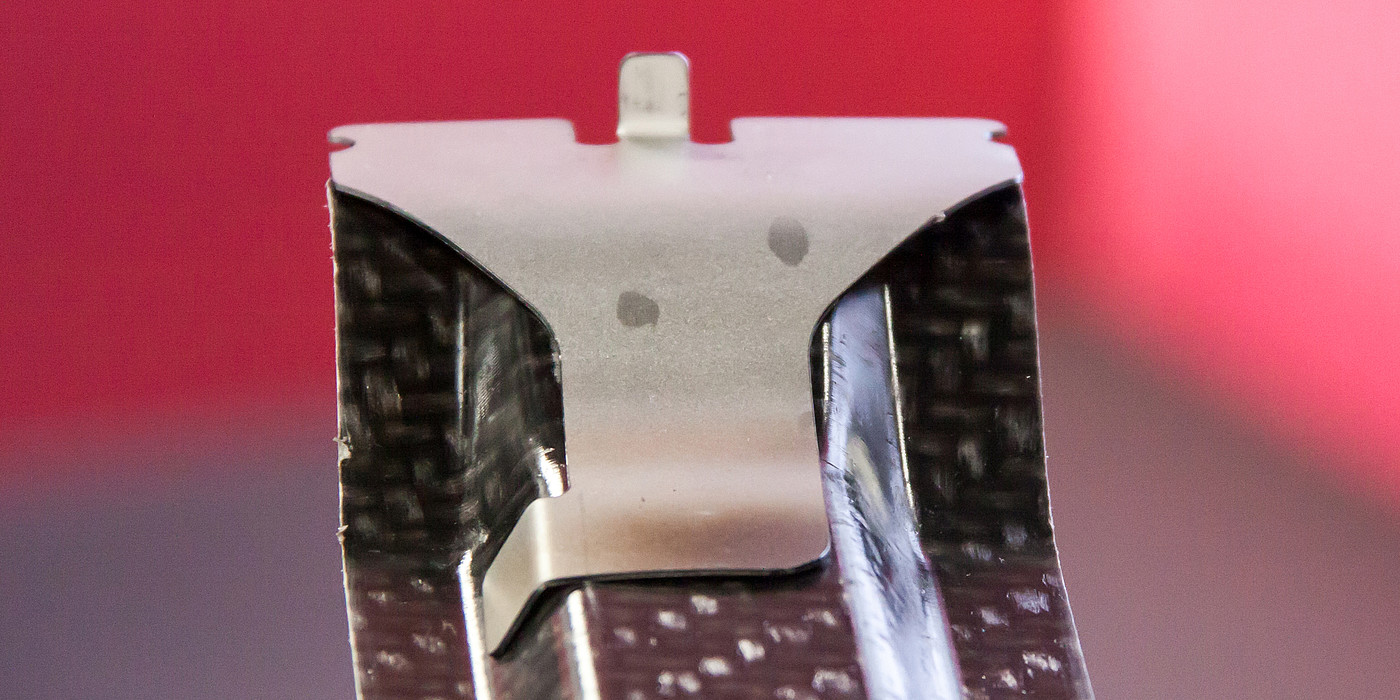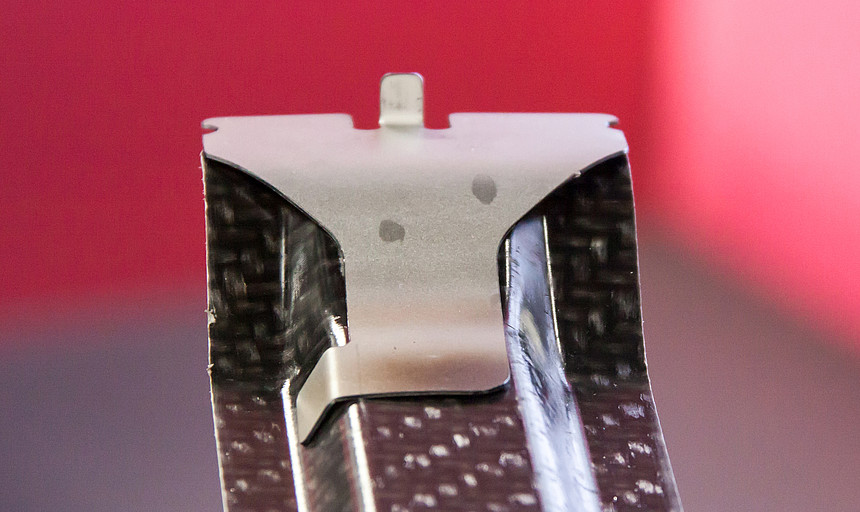In the EU research project FlexHyJoin, weight-optimised combinations of steel and thermoplastic polymer composites were produced in a fully automatic manufacturing cell - without the use of any adhesives or mechanical joining elements during the "fusion" of these extremely different materials.
In terms of cost and production time savings, the advantages of this hybrid joining technology are considerable. In addition, lighter components in the automotive industry reduce the carbon dioxide emissions of vehicles, and thus have a positive effect on the environment. In an application demonstrator, a 40 percent weight-saving potential compared to the reference construction method in steel was produced, and the suitability of the FlexHyJoin technology for mass production was demonstrated at the same time. A roof reinforcement made of continuous glass fibre-reinforced polyamide 6 with metal connecting elements was joined in the fully automatic manufacturing cell. The new hybrid joining technology has the potential to become an important basis for new mobility concepts and, for example, to help establish lightweight design in eMobility.
Just how innovative the production process actually is is demonstrated by the production of the roof element in the manufacturing cell. In the first stage, the metal fastening elements which have already been shaped in a previous stamping process are pre-structured using high-speed laser. The metal parts are then positioned on the preformed thermoplastic organo sheet profile of the roof reinforcement, and heated by laser and electromagnetic induction. When the metal is heated, the polymer matrix material becomes molten at the contact point and, as a result of the simultaneous joining pressure, flows into the laser-structured metal surface.
When it cools, a hybrid structure based on a combined interlocking and substance-to-substance bond is formed. Unlike gluing, the processes used do not require any additional joining materials or elements. The load-bearing fibre structure of the thermoplastic fibre-plastic composite is not damaged, as is the case with bolting, riveting or clinching.
The quality is assured in the production cell by lock-in thermography, a non-destructive method of examining the connection for possible defects. After the check, it is possible to integrate the hybrid components into a higher-level assembly using downstream assembly steps. The metal connecting elements mean that the hybrid component can also be integrated into the further assembly line production process using conventional joining methods such as welding.
The EDAG Group, the world's largest independent engineering partner to the automotive industry, also sees excellent opportunities for using FlexHyJoin technology as an innovative lightweight solution for exterior and interior components. Further applications are conceivable in production plant construction and in the for raw materials and semi-finished product industry.

